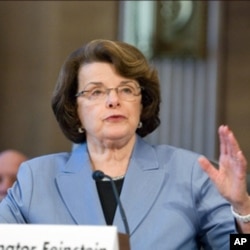U.S. President Barack Obama has a new commander for Afghanistan, General David Petraeus, after removing the previous commander for derogatory remarks about U.S. officials. The change in generals has not altered debate in Washington about how best to pursue victory in Afghanistan, or whether victory is even possible.
In recent days, top Democratic and Republican lawmakers have endorsed President Barack Obama's decision to name a new commander for the war in Afghanistan as necessary and proper. But bipartisan consensus on the way forward in the Afghan war remains as elusive as ever.
Appearing on Fox News Sunday, Republican Senator Lindsey Graham of South Carolina blasted the president for maintaining a target date for withdrawing U.S. forces from Afghanistan, saying it undermines U.S. military and diplomatic efforts in the country.
"If you are sitting down with a tribal leader and everybody in Afghanistan believes that we [the United States] are going to begin to leave in July, 2011 no matter what, it is going to be hard to win over people," he said. "And that has got to change, or we are going to lose."
But Democratic Senator Dianne Feinstein of California says the new U.S. commander in Afghanistan, General David Petraeus, will be given leeway to determine the pace of the withdrawal and how it is carried out.
"Let us talk about the deadline. This is a transition point toward the beginning of a withdrawal, or a drawdown," said Feinstein. "And I think he [Petraeus] has flexibility, realistically."
President Obama has said the withdrawal target date does not mean that U.S. forces will disappear from Afghanistan overnight. Last year, the president ordered additional troops to the country to combat insurgents and accelerate the training of Afghan security forces.
Speaking on ABC's This Week program, CIA Director Leon Panetta said the U.S. goals in Afghanistan are unchanged.
"Our purpose, our whole mission there, is to make sure that al-Qaida never finds another safe haven from which to attack this country," said Panetta. "That is the fundamental goal."
Panetta acknowledged the mission faces what he termed "serious problems", including a resilient Taliban insurgency, corruption on the part of Afghan officials, and a flourishing drug trade in the country.
The lack of progress in Afghanistan after nearly a decade of U.S. military involvement has some Democrats saying it is time to cut American losses. Appearing on NBC's Meet The Press program, Congresswoman Barbara Lee said that, unless U.S. commanders are given a clear withdrawal date, they will always find a way to justify extending the mission.
"I believe that the longer we stay in Afghanistan, we are going to hear generals say, 'It [the mission] may not be working," said Lee. "We need more money, more time, more troops'. Or if there is progress being made, we are going to hear the generals saying, 'We need more money, more troops and a longer timeframe'."
U.S. and NATO troops quickly routed Taliban forces in Afghanistan months after the September 11, 2001 terrorist attacks on the United States. In the years since, the Taliban has regrouped and established effective control over large swaths of Afghan territory.
Afghanistan's drug trade has also flourished, and the government of President Hamid Karzai has been beset by allegations of illegitimacy and corruption. Fledgling Afghan security forces continue to receive training, but have yet to demonstrate they can function on their own.











